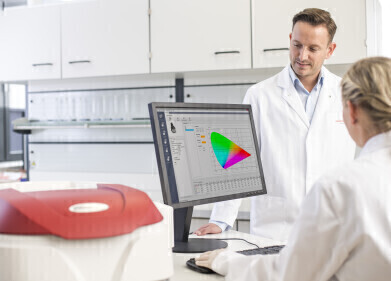-
 Science software implanted into the ear can help to eliminate Meniere's-linked vertigo
Science software implanted into the ear can help to eliminate Meniere's-linked vertigo
Software
Modified science software combats vertigo in Meniere's patients
Oct 21 2010
The disease can be extremely debilitating and is believed to arise from leaking endolymphatic fluid from ruptured inner-ear membranes.
Around three in ten patients suffer bilateral Meniere's disease, but all are likely to experience balance problems which require them to simply lie still for hours on end, until the membrane heals.
Now re-engineered science software and modified cochlear implants are offering a means to tackle the nausea-inducing vertigo associated with the condition.
On October 21st, the first University of Washington test subject receives the implant, which overrides the ear's signals with its own wireless transmission of electrical stimuli, blocking the vertigo effect and its nauseous outcome.
Dr Jay Rubinstein of the department of otolaryngology says: "What we're proposing here is a potentially safer and more effective therapy than exists now."
The department's Dr Kris Moe also made science news headlines recently with the announcement that he has helped to develop a method of brain surgery carried out via the eye socket - and which therefore leaves no visible scarring.
Digital Edition
Lab Asia Dec 2025
December 2025
Chromatography Articles- Cutting-edge sample preparation tools help laboratories to stay ahead of the curveMass Spectrometry & Spectroscopy Articles- Unlocking the complexity of metabolomics: Pushi...
View all digital editions
Events
Jan 21 2026 Tokyo, Japan
Jan 28 2026 Tokyo, Japan
Jan 29 2026 New Delhi, India
Feb 07 2026 Boston, MA, USA
Asia Pharma Expo/Asia Lab Expo
Feb 12 2026 Dhaka, Bangladesh


















